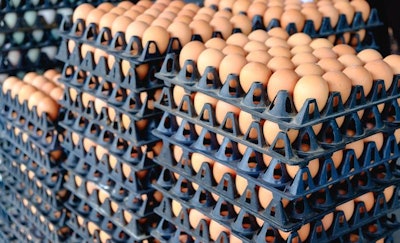
The Massachusetts Senate passed a bill on June 24 that will change the housing density mandate of the 2016 Question 3 law. However, the committee on Ways and Means presented a set of changes to that bill on October 5 that, if passed, are scheduled to take effect on Jan. 1, 2022.
In addition to other amendments in the presentation, Aaron Michlewitz, chairman on the committee on Ways and Means, argued that
- Cage-free houses should include, by definition, multi-tiered aviaries, partially slatted systems, single-level all litter floor systems and any future systems that will comply with the requirements of the definition. Cage-free housing systems should not include systems commonly referred to as battery cages, colony cages, enriched cages, enriched colony cages, modified cages, convertible cages, furnished 24 cages or other similar cage systems.
- 1.0 square foot of usable floor space per hen should be required in multi-tiered aviaries, partially slatted 32 cage-free housing systems or any other cage-free housing system that provides hens with unfettered access to vertical space; or 1.5 square feet of usable floor space per hen should be required in single-level, all-litter floor cage-free houses or any other cage-free housing system that does not provide hens with unfettered access to vertical space
Additionally, Michlewitz stated that the law should be renamed “An Act further regulating hen welfare and establishing uniform cage-free standards” and that it should be declared an emergency law (necessary for the immediate preservation of the public convenience) to prevent potential egg shortages in the state.
The requests were approved and are scheduled to be reviewed by the House.
During the initial housing density changes in June, Massachusetts Senator Jason Lewis stated, “If we don't take action, there will be very few egg producers who will actually be in compliance with the standard as established in the ballot question, and that is not enough egg producers to meet demand here in the commonwealth — in fact far from it.”
In the most recent review of amendments this week, Massachusetts State Representative Carolyn Dykema stated, “Passage of this bill is time sensitive and is essential to protecting our fragile food supply chain when food insecurity is as high as ever.”


















